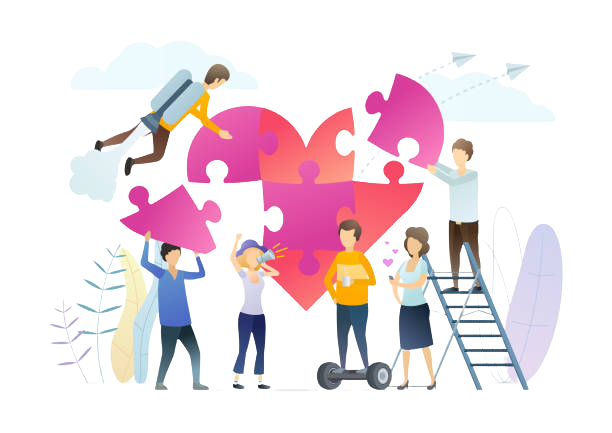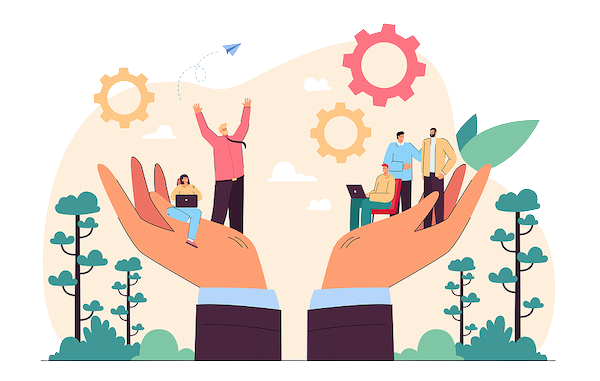The Ripple Effect of Connection:
Understanding Social Wellness

In a world where we often think of ourselves as independent agents, the reality of our interconnectedness is far more profound than we might realize. Social wellness is not just about the relationships we consciously cultivate – it is about the unseen, powerful influence of those around us, extending far beyond our immediate circle.
Recent research reveals that our moods, behaviors, and even our health can be significantly shaped by the people in our lives, including those we have never met. Our emotions are contagious, spreading through social networks like ripples in a pond. This means that happiness, sadness, and even habits like smoking or dietary choices can be influenced not just by our friends, but by friends of friends, and even friends of friends of friends.
Consider this: If a close friend becomes happier, your own chances of feeling happier increase by more than 60%, even if that friend lives a few kilometers away. The influence weakens with distance, but it persists, showing just how deeply we are affected by those around us.
The power of social wellness lies in our ability to recognize these influences and harness them for our benefit. By being aware of how social contagion works, we can make conscious choices about the people we spend time with and the environments we immerse ourselves in. Seeking out positive influences and minimizing exposure to negative ones can be a proactive step toward better mental and physical health.
The Three Degrees of Social Contagion: How Our Connections Shape Us

The phenomenon of social contagion, where behaviors and emotions spread through social networks, reveals some fascinating dynamics. One of the most intriguing findings comes from Nicholas A. Christakis, a renowned sociologist and physician. His research has shown that the influence of behaviors such as happiness, obesity, and smoking habits extends up to three degrees of separation – no further. This means that the behaviors of your friend’s friend’s friend can impact you, but those beyond that level of connection are unlikely to exert significant influence.
But why is this influence limited to three degrees? One theory suggests that friendship networks are inherently unstable, especially at the periphery, where connections tend to fade over time. As Christakis explains, while your closest friends are likely to remain the same over the years, your friends of friends of friends are more likely to change, weakening the impact they have on you.
This raises the question: What determines the structure of our social networks and our place within them? Numerous factors come into play, including where we live, work, our family size, education, religion, income, and interests. These elements shape who we connect with and how deeply those connections affect us. However, Christakis’s latest research points to an additional factor – genetics. By studying identical and fraternal twins, his team found that identical twins tend to have more similar social networks, suggesting that our genes may influence not just how many people we connect with, but also the types of connections we form.
This genetic influence goes beyond mere personality traits like extroversion or shyness. It may also determine our propensity to befriend certain types of people, such as those who are more socially popular. The idea that our genes could influence our social standing within a network is both mysterious and fascinating.
Understanding these dynamics is crucial, especially when it comes to the “collective intelligence” of social networks – a concept some researchers compare to the flocking of birds. Just as a bird’s decision to change direction is not made in isolation, our behaviors, such as quitting smoking, are often influenced by the collective actions of our social circle.
To better understand these patterns, sociologists like Duncan Watts of Columbia University are using mathematical models to study how behaviors spread. Watts’s research challenges the idea, popularized by Malcolm Gladwell in “The Tipping Point,” that social epidemics are driven by a few key influencers. Instead, Watts argues that the spread of ideas and behaviors depends on a critical mass of interconnected individuals who mutually influence each other.
Given the pervasive nature of social influence, is there any way to mitigate its effects? Completely escaping social influence may be impossible, but awareness can empower us to make more intentional choices. By surrounding ourselves with people whose lifestyles and behaviors align with our goals, we can harness social contagion to our advantage. If, for example, you want to adopt healthier habits, joining a community that supports those habits and actively engaging with its members can make a significant difference.
While cutting ties with friends who have undesirable habits may seem drastic, spending less time with them or minimizing their influence could be a practical approach. And remember the three degrees of contagion rule: even those who associate with negative influences, without directly displaying those behaviors, can still impact you.
In situations where you cannot avoid negative influences, such as family gatherings, consciously resisting the urge to mimic their behavior or body language can help limit the contagion effect – though be prepared for some coolness in the relationship as a result.
Ultimately, navigating social contagion is about subtle social reorientation. Since we are inherently influenced by those around us, it is vital to choose our companions wisely. After all, we truly are who we hang out with.
So, what can we do with this knowledge? While we cannot escape social influence entirely, we can navigate it with intention. By surrounding ourselves with people who embody the qualities we aspire to, we can elevate our own lives. This might mean joining a community that aligns with our goals or spending more time with those who bring out the best in us.
Ultimately, social wellness is about understanding the power of connection and making choices that enhance our well-being. Remember, we are who we hang out with, so choose your companions wisely.
